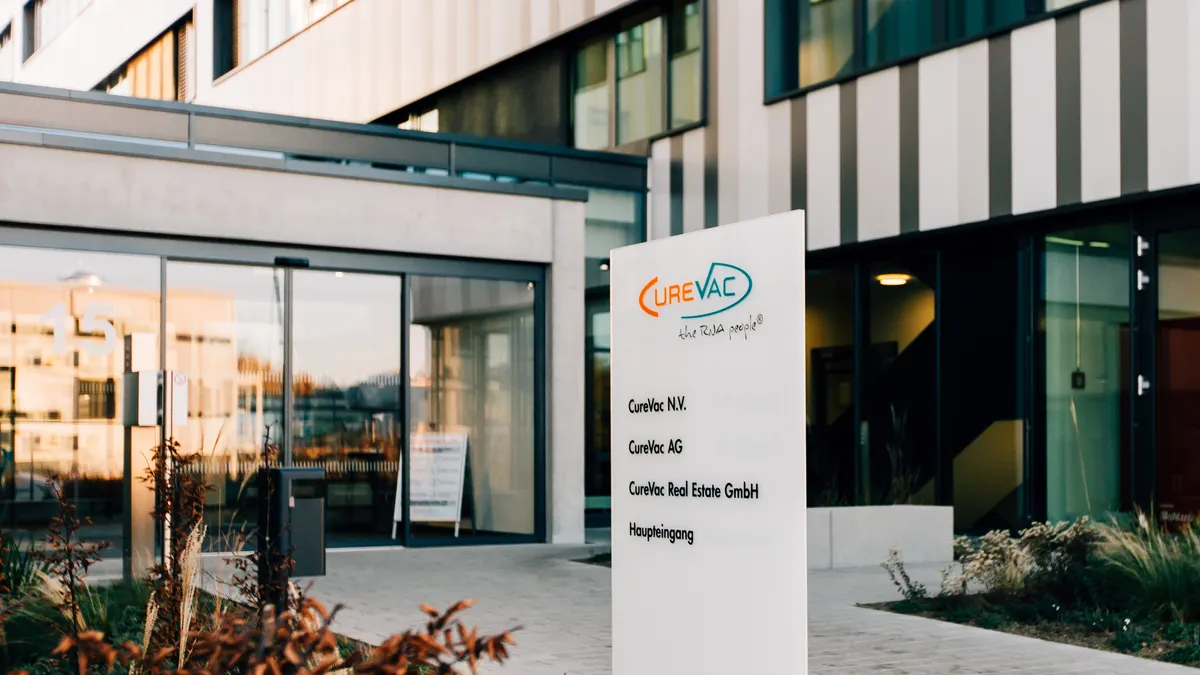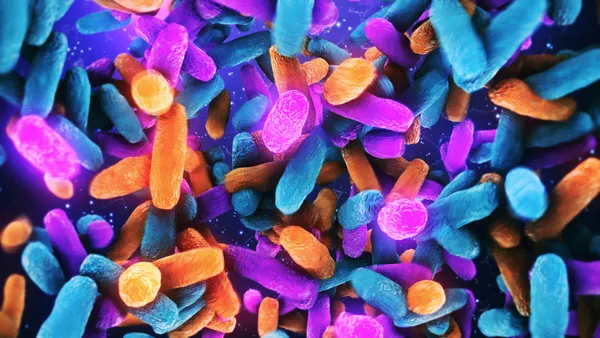Dive Brief:
- COVID vaccine maker BioNTech is buying rival CureVac, announcing Thursday an all-stock deal weeks before the two companies were due to face off in a German court over potentially billions of dollars worth of royalties related to intellectual property on messenger RNA drugs.
- Per deal terms, each CureVac share will be exchanged for about $5.46 worth of BioNTech’s U.S.-listed shares, valuing the company at $1.25 billion. Upon the deal’s close, CureVac shareholders will own between 4% and 6% of BioNTech.
- In the early days of the COVID-19 pandemic, BioNTech and CureVac were among the companies racing to develop the first coronavirus vaccines. BioNTech, however, partnered with Pfizer and won approval of the first COVID-19 shot, while CureVac’s program never made it to market. The two companies have since been embroiled in patent litigation.
Dive Insight:
CureVac was a leading candidate to develop the first COVID-19 vaccine, launching rumors, later denied, that the U.S. government might even buy the company or its research. But while BioNTech and fellow mRNA drugmaker Moderna succeeded in making vaccines that saved millions of lives and earned billions of dollars in revenue, CureVac fell short. Its initial project wasn’t effective enough at preventing sickness, prompting it to scrap development.
A year later, CureVac sued BioNTech, claiming it infringed four patents. CureVac has since changed course, selling off most rights to influenza and COVID-19 vaccines to partner GSK and focusing on cancer instead.
But its legal spat with BioNTech has lingered. The European Patent Office had upheld two CureVac patents, and a trial in a Dusseldorf regional court was set on July 1 to determine if BioNTech had infringed on them. A separate trial in the U.S. was scheduled to begin Sept. 8 in Virginia.
Some Wall Street analysts, as a result, speculated that BioNTech’s primary purpose is buying CureVac is to sidestep the risk of a loss in court. A single-digit percentage royalty awarded to CureVac could’ve cost BioNTech as much as $3 billion, Evercore ISI analyst Umer Raffat wrote in a note to clients.
“It seems to us that [BioNTech] assessed the cost of a cash settlement as substantially greater than the cost of buying [CureVac] outright,” Raffat wrote.
The deal could also help BioNTech further its oncology ambitions. Like CureVac, BioNTech has made cancer research a top priority. It’s invested in a variety of programs, from cell therapies to mRNA vaccines and a coveted type of bispecific antibody. Some are in advanced testing.
CureVac’s cancer vaccines are in earlier phases of development. A brain cancer shot has delivered early clinical data, while a lung cancer immunotherapy was cleared in April for human testing. The deal should help CureVac because of “the early stage of the oncology pipeline and the need for a development partner to effectively compete in personalized cancer vaccines – which [BioNTech] is well positioned to execute,” wrote Leerink Partners analyst Mani Foroohar.
Raffat, of Evercore ISI, however, wrote that the deal ascribes “very little value” to CureVac’s pipeline.













